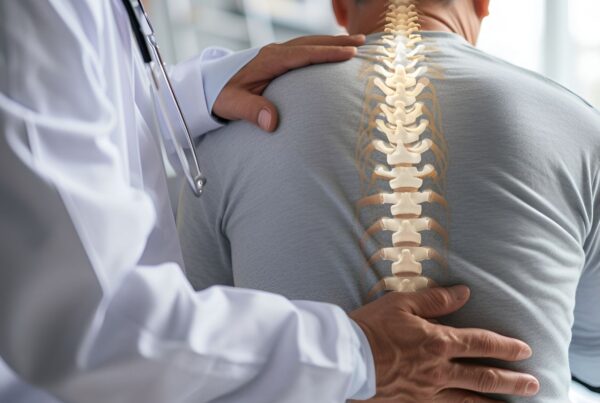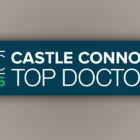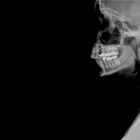Cervical radiculopathy might seem like a complex term, but it’s essentially an issue with your neck that can lead to pain, weakness, or numbness due to pressure on your spine’s nerves. Let’s dive into how this condition is treated, from non-invasive methods to surgery, and see how you can improve your well-being.
Cervical Radiculopathy Treatment: Getting Started
When you hear the term cervical radiculopathy, it might sound complicated, but it’s really about a neck condition that can cause pain, weakness, or numbness. This happens because the nerves in your neck, part of your cervical spine, are being squeezed or pressured. If you’re feeling neck pain or radiating arm pain, it’s a sign that these nerves are not happy!
So, what do doctors do first? They start with treatments that don’t involve surgery. Physical therapy is a big deal here, as are medications. If the doctor thinks your neck needs a little break to heal, they might give you a cervical collar. It’s a kind of neck brace that keeps your neck still and protected. We’ll explore these concepts in greater depth shortly.
These steps are super important for tackling the first symptoms of cervical radiculopathy, like that nagging neck pain and any muscle weakness you might feel. Using these conservative treatments, we can try to get these symptoms under control and give your neck a chance to heal without jumping straight to surgery. It’s all about giving your cervical spine what it needs to get better, so you can get back to doing your thing without neck pain getting in the way.
Treatment for Radiculopathy Cervical: Exploring Your Options
One of the main stars in the non-surgical treatment lineup is physical therapy. Think of it as a gym routine specifically designed for your neck. The exercises strengthen your neck muscles, making them better supporters for your cervical spine. This, in turn, eases the pressure on the nerve roots, which are the parts of the nerves that are getting squished and causing you pain.
Your daily habits and activities might need a bit of tweaking too. Your doctor or therapist can guide you on how to sit, stand, and move in ways that are kinder to your neck. It’s all about keeping those nerve roots happy and pressure-free.
Medications play a big role as well. Anti-inflammatory drugs are the go-to because they reduce swelling and pain, making life a lot more comfortable while your neck heals. These treatments aim to tackle the symptoms—like that annoying neck pain and muscle weakness—giving your body a chance to recover without the need for surgery. Non-narcotic medications for nerve pain like Gabapentin and Pregabalin can help as well.
Remember, these conservative treatments are your first line of defense. They’re like the body’s own repair team, working to fix the issue and get you back to feeling good. By following this non-surgical path, you’re giving your body a chance to heal naturally and prevent further issues with your cervical spine and nerve roots.
Cervical Radiculopathy Surgery: When Do You Need It?
In some cases, when conservative treatments aren’t effective or the condition is severe, surgery might be the best path forward. Surgical procedures for cervical radiculopathy are aimed at resolving the root cause of nerve compression, such as removing bone spurs or correcting herniated discs. These issues can narrow the spinal canal, putting pressure on the spinal nerve. MRI scans are often used to get a detailed view of the spine, helping surgeons plan the intervention accurately. Surgery is considered when there’s significant risk to the spinal nerve or spinal cord, or when nonsurgical treatment hasn’t provided sufficient relief.
It's time to get back
to doing what you love.
Cervical Radiculopathy Therapies: More Ways to Heal
Beyond standard treatments, additional therapies can be effective in easing cervical radiculopathy symptoms. Chiropractic care, acupuncture, and massage therapy are alternative treatments that can complement your treatment plan. They work by addressing different aspects of the condition, from muscle weakness to nerve compression, offering a holistic approach to your recovery. These therapies, alongside conventional treatments, can play a significant role in your healing process, providing a multifaceted strategy to improve your neck’s health and functionality.
Why Choose Neurosurgeons of New Jersey for your Cervical Radiculopathy Treatment?
Neurosurgeons of New Jersey is recognized as the #1 Neurosurgery Practice in New Jersey, with 11 convenient locations across the state. Our highly qualified doctors were educated at America’s premier academic centers, have earned numerous awards in neurosurgery, and are experts at taking care of your cervical spine. We accept and work with a wide variety of health insurance plans, including Aetna, Horizon Blue Cross Blue Shield, Oxford/United Healthcare, Cigna, Personal Injury Protection (PIP)/No-Fault for NJ Motor Vehicle Accidents, the Empire Plan (NYSHIP), Medicare, NJ Medicaid, and Workers’ Compensation. Even if your insurance isn’t listed, you may still qualify for substantial coverage, making top-tier neurosurgical care accessible to more patients.
Cervical radiculopathy surgery can be performed as a minimally invasive procedure, which offers significant benefits such as shorter recovery times, allowing patients to return to their daily activities more quickly, and reduced postoperative pain. The minimally invasive approach also generally results in fewer complications and less scarring compared to traditional open surgery. This surgical technique enhances the overall safety of the procedure and improves the patient’s recovery experience, making it a popular option for our Eatontown Spine team for effectively treating symptoms of cervical radiculopathy.
Treatment for Cervical Radiculopathy: Putting It All Together
Managing cervical radiculopathy typically involves a combination of treatments tailored to your specific needs. Your healthcare provider may integrate physical therapy, medications, lifestyle modifications, and possibly surgery or other therapies to target both the symptoms and the underlying cause of your condition. This comprehensive approach aims to reduce your pain, strengthen your neck, relieve pressure on the spinal nerve, and enhance your overall quality of life. By addressing the various aspects of cervical radiculopathy, including muscle weakness and spinal canal narrowing, the treatment plan focuses on long-term improvement and prevention of future issues.
Navigating through cervical radiculopathy can be challenging, but understanding your treatment options can empower you to take control of your health. Whether through conservative treatments, surgical interventions, or additional therapies, the goal is to alleviate your symptoms and address the condition’s root cause. If you’re experiencing symptoms like neck pain, radiating arm pain, or muscle weakness, it’s important to seek medical advice and explore the best treatment options for your situation. With the right care and approach, you can work towards recovery and improving your neck’s health and functionality.
Dr. Ty J. Olson, MD, FACS
Dr. David Estin, MD, FACS
Dr. Anthony Conte, MD
Dr. Christopher Gillis, MD, FRCSC, FAANS
Dr. Jonathan H. Lustgarten, MD

About Eatontown
Our team of board certified physicians, located in Eatontown, New Jersey, are dedicated to bringing you the latest developments and treatment options for spinal surgery. We strive to produce the most clarified & clear content to help you make informed decisions on your medical journey. The road to feeling like your true self should not feel lonely- Let us help you. Please call us to schedule a consultation and speak to one of our team members.
Recent Posts:






